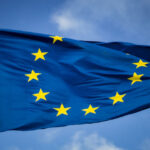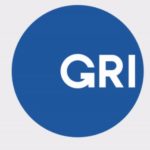The third CSR Round Table on CSR Reporting took place on 24th June 2002 in Brussels. This event took place in the framework of the experimentation of a European Multi-stakeholder Forum on CSR, following the call by a wide range of business representatives and stakeholder groups – in their responses to the Green Paper – for the Commission to encourage constructive dialogue between all CSR actors.
The morning session, chaired by Mr Bernhard Jansen, Director EMPL/D, was introduced by Mrs. Odile Quintin, Director General of DG Employment and Social Affairs. Mrs. Quintin reminded the need of experimentation and innovation in the field of CSR, and the key role of partnership between companies and their main stakeholders in order to promote effective CSR practices.
Specifically on the subject of the Round Table, she underlined the importance of developing rigorous methodologies for reporting and third party verification in order to guarantee credibility, transparency and comparability of companies’ practices.
It followed a session dedicated to GRI, the Global Reporting Initiative, with a presentation by Dr. Allen White, GRI Acting Chief Executive, and a panel discussion with Mr. Roger Adams, Executive Director in ACCA (Association of Chartered Certified Accountants); Sir Mark Moody-Stuart, Former Chairman of Royal Dutch/Shell, and Mr. Dwight Justice, from the ICFTU (International Confederation of Free Trade Unions).
GRI is a multistakeholder initiative which aims at developing a global framework for triple bottom line reporting and is about to release the second edition of its sustainability reporting guidelines (http://www.globalreporting.org/GRIGuidelines/).
As an example of business practices, Mr. Miguel Veiga-Pestana, European Public Affairs Director of Unilever, presented his company’s approach to reporting. Unilever published its first CSR report in 1998 and will release its second « Social Review » this autumn. The company has developed a self-assessment model piloted in 9 countries which will be extended to a further 11 countries this year. Its focus is on the following areas: agriculture, fisheries and water. Unilever sees reporting both as a tool for progress in implementing a CSR strategy and as a means of communicating with stakeholders.
Another company case was presented by Mrs. Carmen Kühnl of Siemens.
It followed two contributions on the issue of « assurance » of sustainability reports, i.e. increasing the quality and credibility of company’s statements, by FEE (Fédérations des Experts Comptables Européens) the organisation representing the accounting profession in Europe – and AccountAbility (Institute for Social and Ethical Accountability), a UK-based professional organisation.
Mr Lars-Olle Larsson, Chairman of the FEE Sustainability Assurance Subgroup, presented a discussion paper "Providing Assurance on Sustainability Reports" (http://www.fee.be/publications/main.htm) recently issued by FEE with the aim to stimulate debate on assurance provision. The document focuses on the key elements to ensure a wide scale acceptance of sustainability reporting (i.e. completeness and objectivity of information, independent verification) and mentions the need to make a business case for assurance, as there are no statutory requirements for assurance on reporting.
Mr. Simon Zadek, Chief Executive of AccountAbility, presented the new AA1000s Assurance Standard, which aims to provide the basis for a generally accepted approach to assuring public reports that cover social, ethical, economic, and environmental performance and impacts. This standard will be launched at the end of this year after an extensive consultation process and will be designed to be consistent with the GRI Guidelines.
(http://www.accountability.org.uk/uploadstore/cms/docs/Pre-release.AA1000S%20Assurance%20Framework.pdf)
Some of the main issues raised during the open debate in the afternoon session related to:
Reporting is a tool, what counts more is the company’s commitment to CSR and its actual impact on improving behaviour;
Reporting: voluntary or mandatory? Some participants advocated for mandatory framework in order to establish minimum provisions on the content, format, performance indicators and audit procedures, whereas others underlined the efficiency of a voluntary response based on the company’s self-interest and culture rather than a compliance response;
Need to ensure a balance between the desire of consistency (to allow comparison within and across sectors) and the need for flexibility (to meet different needs of sectors, companies sizes, etc.);
Need to involve SMEs in reporting initiatives but attention not to impose more red tape on them;
The consumers’ right to be informed on the way goods and services are produced;
Investors’ interest in knowing if and how the company identifies, assesses and manages its risks linked to social, ethical and environmental issues;
The Chair concluded that the Commission still had an « open mind » regarding some of the contentious issues. The Commission’s strategy to promote CSR is focused on a partnership approach. In its forthcoming Communication on Corporate Social Responsibility, the Commission will propose the setting up of a European Multi-stakeholder Forum on CSR with the aim to facilitate the exchange of experience and build consensus on guiding principles for specific CSR issues, like reporting.



